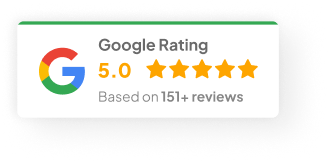03 Oct 25
WordPress to HubSpot Migration: Which Platform Will Better Serve Your Sales Conversion Needs?
When a business starts tossing around the idea of re-platforming, it’s usually not for fun. The reason’s simple—better sales conversions. And if you’re looking at WordPress vs. HubSpot, the big question is the same every time: which one’s actually going to help turn more visitors into paying customers?
Both platforms have strong reputations. HubSpot sells itself as the all-in-one marketing and sales hub. WordPress is the old hand, known for flexibility and control. Which one’s better depends on how much freedom you want, how much convenience you need, and how far ahead you’re planning.
HubSpot’s Play
HubSpot CMS is very much made for marketers. Less tinkering, more plug-and-play. If a team doesn’t have a developer on speed dial, that’s a big plus.
Where it shines:
- One ecosystem: CMS, CRM, email, automation, analytics—it’s all in one spot.
- Easy editing: Drag-and-drop builder, pre-built templates, quick to spin up pages.
- Lead tools baked in: Personalized CTAs, smart content, forms that drop right into the CRM.
- Security handled: Hosting, SSL, CDN, all done for you.
Where it falls short:
- Costs stack up. Entry-level feels fine, but advanced features come at a premium.
- Customization has limits. HubL (their language) means you can’t always bend the system the way you want.
- E-commerce? Weak. You’ll be patching things together with integrations.
It works well if the business is already living inside the HubSpot ecosystem. If not, it can feel like trading freedom for convenience.
Why WordPress Still Runs the Web
Here’s the thing: in 2025, WordPress runs about 43.4% of CMS-driven websites. HubSpot? Less than 1.5%. That’s not just a popularity contest—it’s proof of staying power.
What keeps WordPress on top:
- Flexibility. Themes, plugins, custom code—you name it, you can build it.
- Plugin ecosystem. Need A/B testing, pop-ups, advanced forms? There’s always a plugin.
- SEO edge. Tools like Yoast SEO and Rank Math give you fine-tuned control.
- Cost management. Pay for hosting and add-ons, but avoid locked-in platform fees.
- Scalability. Handles small sites and enterprise builds alike.
The downsides:
- Maintenance is on you. Hosting, updates, backups—it doesn’t do itself.
- Can get slow. Stack too many junk plugins and you’ll feel it.
- Security’s your job. Open-source freedom means extra vigilance.
Even with those headaches, most businesses that invest properly in WordPress end up ahead. The control pays off.
The Conversion Factor
A CMS isn’t just about publishing pages—it’s about whether it makes you money. That comes down to speed, SEO, and user experience.
- Speed. A study found conversion rates drop 4.42% for every extra second of load time (0–5s). WordPress, paired with good hosting and caching, usually has more room to optimize than HubSpot.
- SEO. Content Marketing Institute reports leaders in content marketing see nearly 7.8x more traffic than the rest. WordPress gives stronger technical SEO control, which means more opportunities to pull in organic traffic.
- Customization. Econsultancy found 78% of marketers believe personalized experiences boost engagement. WordPress lets you build those custom flows—HubSpot’s templates don’t always stretch that far.
That’s why, when conversions are the focus, WordPress often ends up the safer long-term bet.
When HubSpot Still Makes Sense
Not every business wants to fiddle with plugins and updates. Some just want a system that’s ready to go. HubSpot fits well if:
- The team has limited technical know-how.
- CRM and marketing automation are already running in HubSpot.
- The need is speed—quick launch, built-in lead tracking, simple reporting.
If the funnel is straightforward, HubSpot feels like the right tool.
Why WordPress Wins for Growth
WordPress isn’t always the quickest setup, but it’s the more flexible growth engine. Businesses looking beyond the next 12 months usually value:
- Control over every step of the customer journey.
- Lower long-term costs compared to HubSpot’s rising fees.
- More options to test, tweak, and optimize for conversions.
That’s the stuff that builds scalability over time.
Chromatix: Building WordPress Sites That Convert
At Chromatix, WordPress has been the backbone for years. The team doesn’t just design good-looking websites—they build sites engineered for conversions.
- Speed optimization baked into every build.
- Funnels designed to guide action.
- A/B testing to keep performance improving.
- SEO-friendly architecture that drives sustainable traffic.
That’s why Chromatix is trusted for more than aesthetics. It’s about turning visitors into customers, plain and simple.
So, WordPress or HubSpot?
Both platforms work, but in different ways.
- Choose HubSpot if the business values simplicity and wants an all-in-one package.
- Choose WordPress if the priority is flexibility, SEO control, and growth without being boxed in.
The better choice depends on resources, goals, and appetite for customization. But when conversion optimization is the game, WordPress still comes out ahead more often than not.
Thinking about a migration or ready to build a site that looks good and sells? Chromatix can help make it happen.


